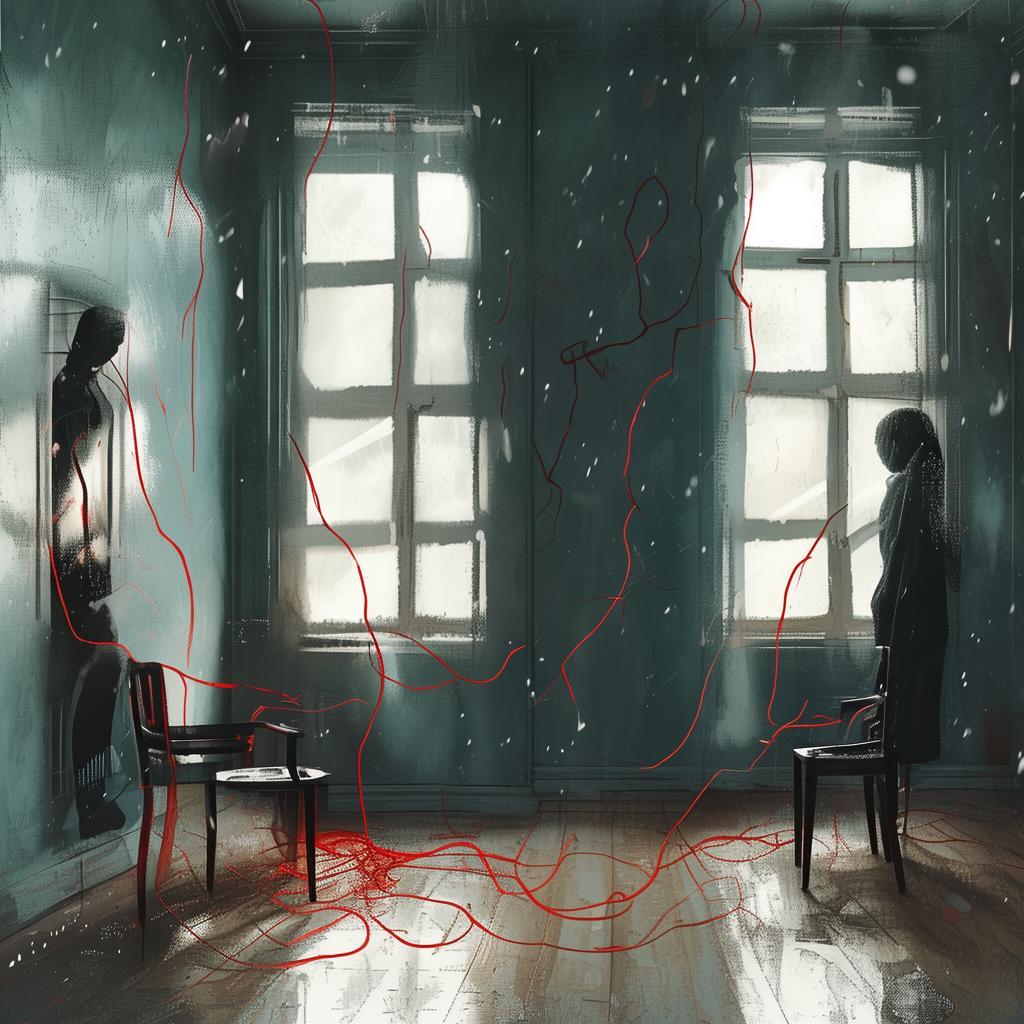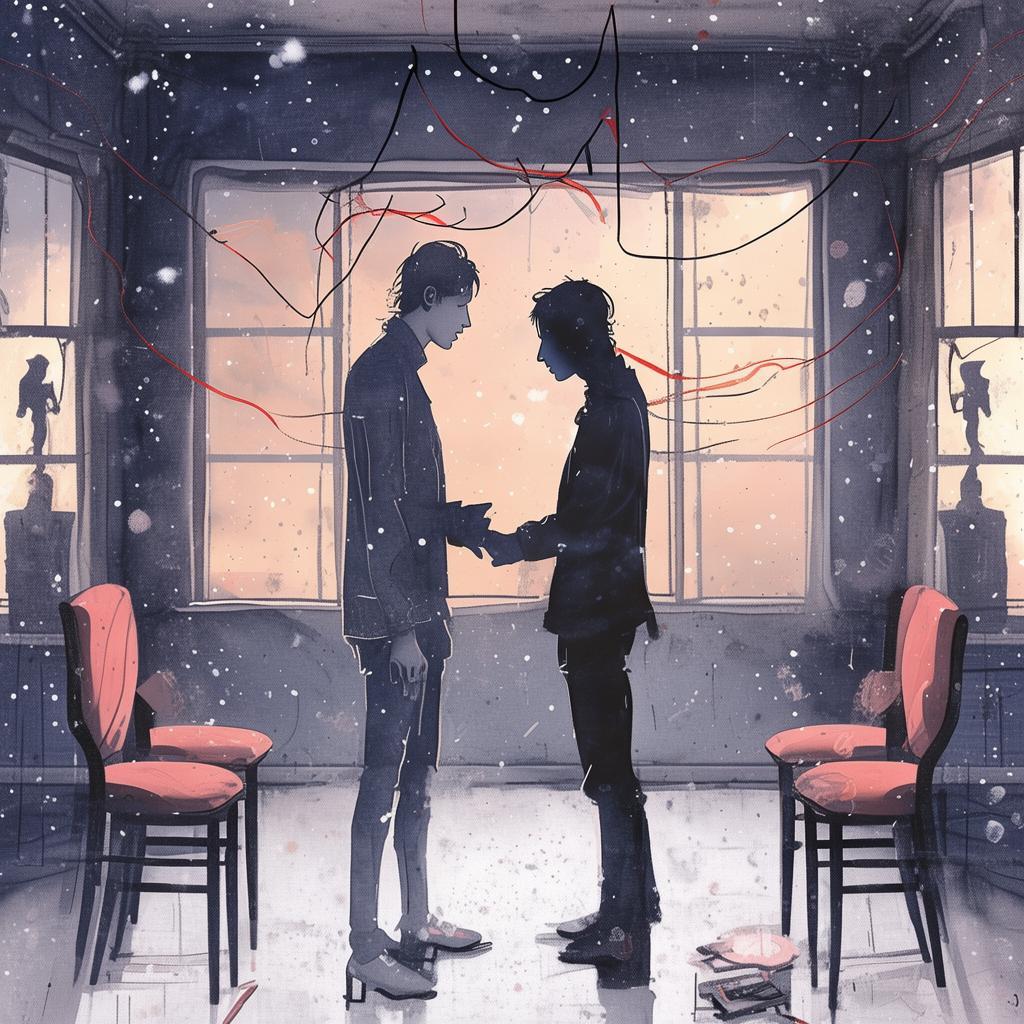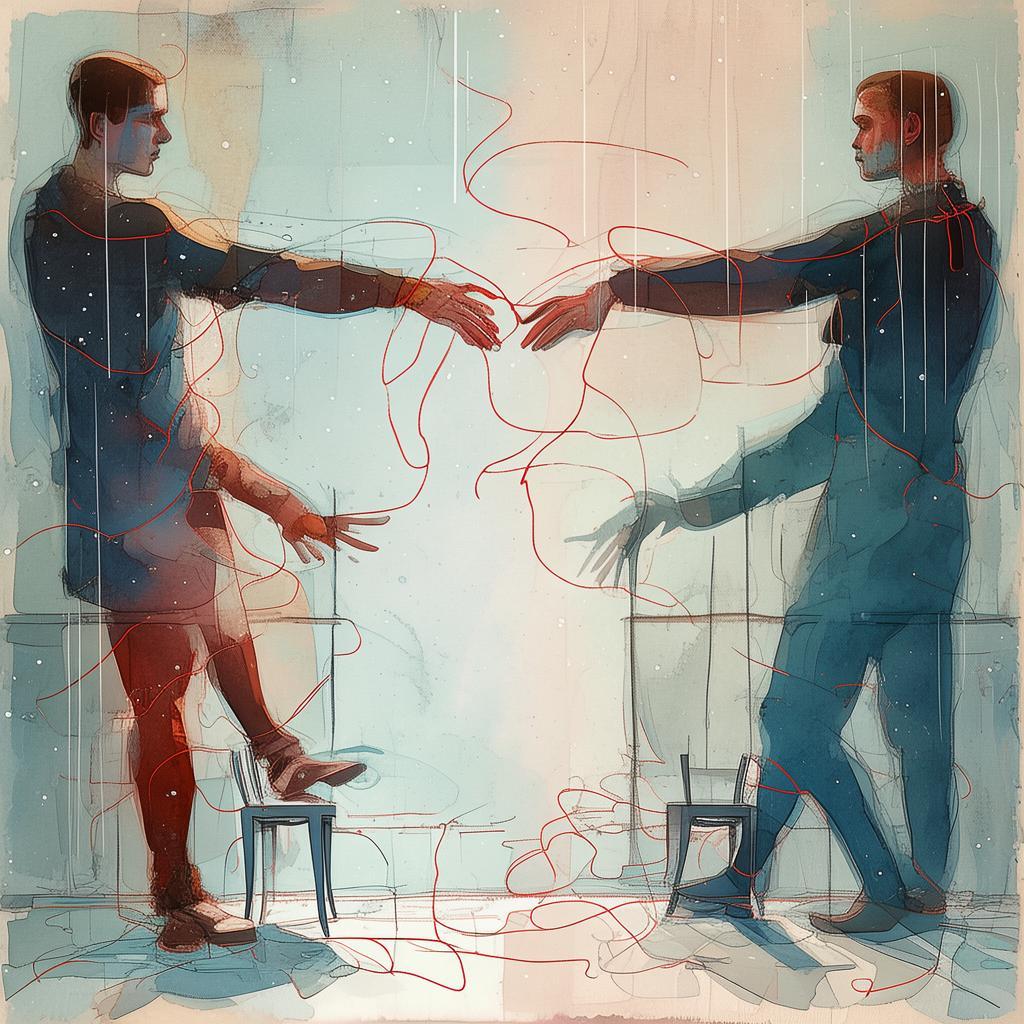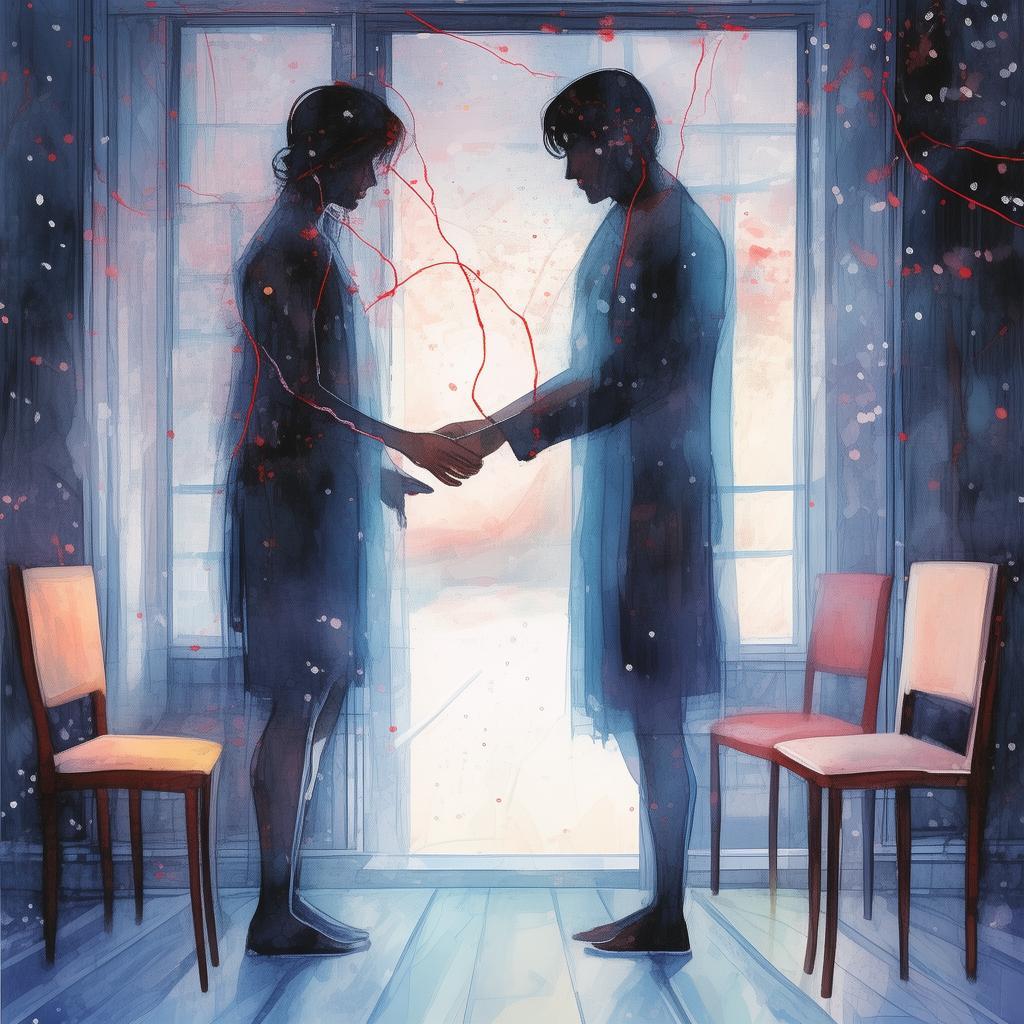The Detective's Phantom of the Opera
In the shadowy underbelly of Paris, where the grandeur of the opera house meets the seedy streets, Detective Édouard Lefèvre was a man of many secrets. His life was a tapestry of shadows, and he navigated the dark alleys of the city with a precision that few could match. But even the most skilled detective could not escape the supernatural, and so it was that one night, as the moon hung low and the city slumbered, Édouard found himself face to face with the Phantom of the Opera.
The opera house was a place of beauty and tragedy, a sanctuary for the soulful melodies of the chorus and the haunting voice of the Phantom. It was also the site of a mystery that had haunted the city for years—a mystery that had claimed the life of a young soprano named Élise. Her ghost, a specter of ethereal beauty, had been seen wandering the halls of the opera house, her voice a haunting melody that echoed through the empty spaces.
Édouard had been called to the opera house to investigate the death of a renowned tenor, a man who had been found dead in his dressing room, his throat slit. The police had ruled it a suicide, but something about the case felt off. The tenor's last words were a cryptic message about a "promise" and a "promise keeper," and it was this enigmatic detail that had brought Édouard to the opera house.
As he wandered the dimly lit halls, the sound of the Phantom's voice reached him. It was a voice that could slice through the thickest of walls, a sound that seemed to come from everywhere and nowhere at once. Édouard's heart raced as he followed the melody, his senses heightened by the eerie atmosphere.
He found the Phantom in the grand opera house, a figure cloaked in darkness, his face illuminated by the faint glow of a single candle. The Phantom's eyes were like two burning coals, piercing through the shadows. "Detective Lefèvre," the Phantom's voice was like the rustle of silk, "you have come to me."
Édouard took a step back, his hand instinctively going to his holstered gun. "Who are you?" he demanded, his voice steady despite the tremor in his hands.
"I am the Phantom," the voice replied, its tone tinged with a hint of sorrow. "And I have come to you because my heart is heavy with a burden that must be shared."
The Phantom spoke of Élise, of how she had been betrayed by the very man she loved, and how her spirit had been bound to the opera house in a fit of despair. "She was a victim of circumstance," the Phantom said, "and now she is trapped, her voice a ghostly reminder of her sorrow."
Édouard listened intently, the weight of the Phantom's words pressing down on him. He knew that the case of the tenor was no mere suicide; there was more to it than met the eye. But it was the Phantom's plea for help that truly shook him. "I need you to find her," the Phantom implored, "to free her spirit from this place."
Determined to uncover the truth, Édouard began to delve deeper into the lives of the opera's performers, the staff, and the patrons. He discovered a web of deceit, love, and loss that stretched far beyond the walls of the opera house. He learned of a secret society that had been operating within the ranks of the opera, a society that had connections to the highest echelons of power in Paris.
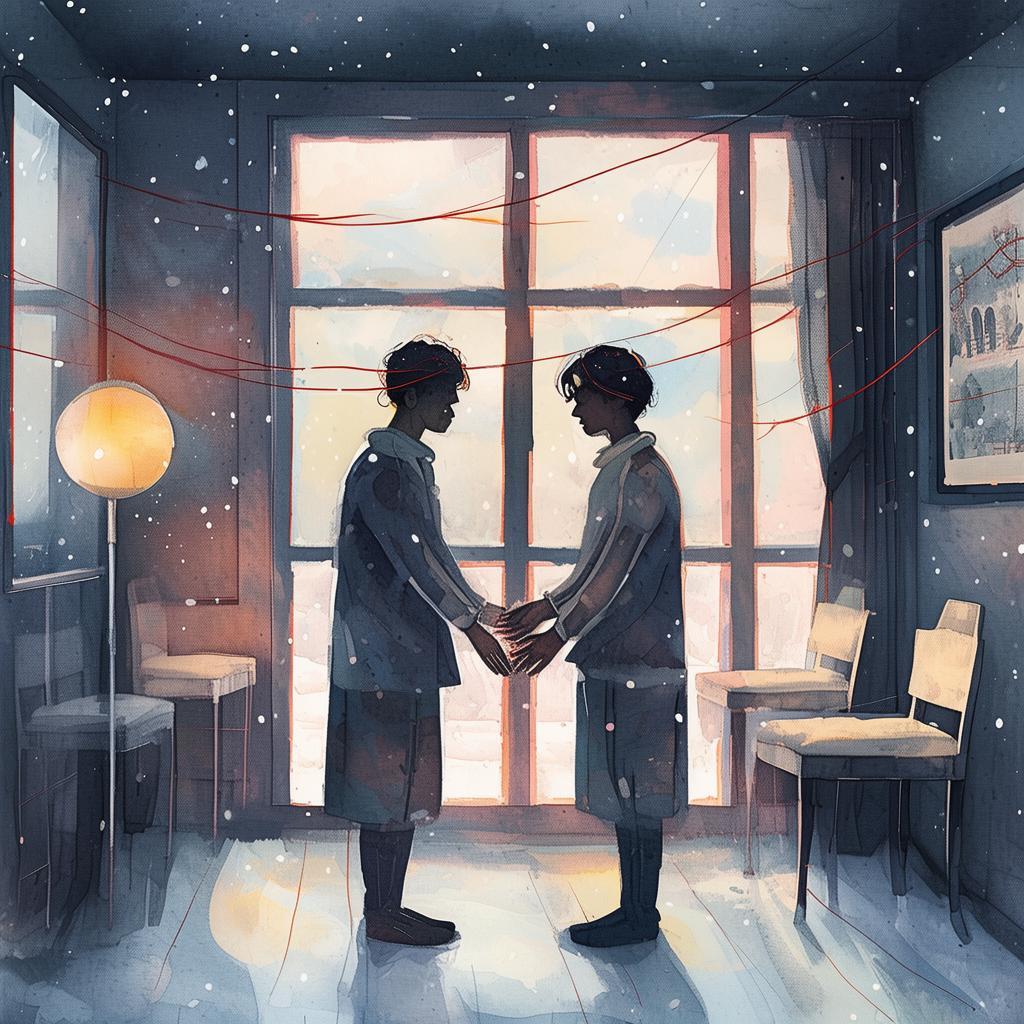
As he pieced together the puzzle, Édouard found himself falling for a young soprano named Isolde, who was not only a brilliant singer but also a kindred spirit. Their relationship was a delicate dance, one that was fraught with danger as they navigated the treacherous waters of the opera's world.
The closer he got to the truth, the more dangerous it became. The Phantom had warned him that those who sought to keep the opera's secrets would stop at nothing to protect them. And as the walls of the opera house closed in around him, Édouard realized that he was not just chasing a mystery; he was running a race against time.
The climax of the story came when Édouard discovered that the tenor's death was no accident. He had been targeted by the secret society because he had uncovered their plans to exploit the opera's performers for their own gain. The Phantom had been right; Élise's spirit was bound to the opera house, and the only way to free her was to unravel the society's web of deceit.
In a heart-pounding confrontation, Édouard faced off against the leaders of the secret society. The opera house became a battleground, with the lives of the performers hanging in the balance. In the end, it was Isolde's bravery and the Phantom's sacrifice that turned the tide of the battle.
With the secret society defeated and the truth exposed, Édouard and Isolde stood together, their hands entwined. The Phantom's spirit was finally free, and the opera house was once again a place of beauty and harmony.
As the dust settled, Édouard reflected on the journey he had taken. He had faced the supernatural, the darkest corners of the human heart, and the deepest love of all. In the end, it was the power of love and the unyielding spirit of the Phantom that had brought him through.
The Detective's Phantom of the Opera was not just a story of a detective solving a mystery; it was a tale of love, loss, and redemption. It was a story that would resonate with readers long after they turned the final page.
✨ Original Statement ✨
All articles published on this website (including but not limited to text, images, videos, and other content) are original or authorized for reposting and are protected by relevant laws. Without the explicit written permission of this website, no individual or organization may copy, modify, repost, or use the content for commercial purposes.
If you need to quote or cooperate, please contact this site for authorization. We reserve the right to pursue legal responsibility for any unauthorized use.
Hereby declared.
